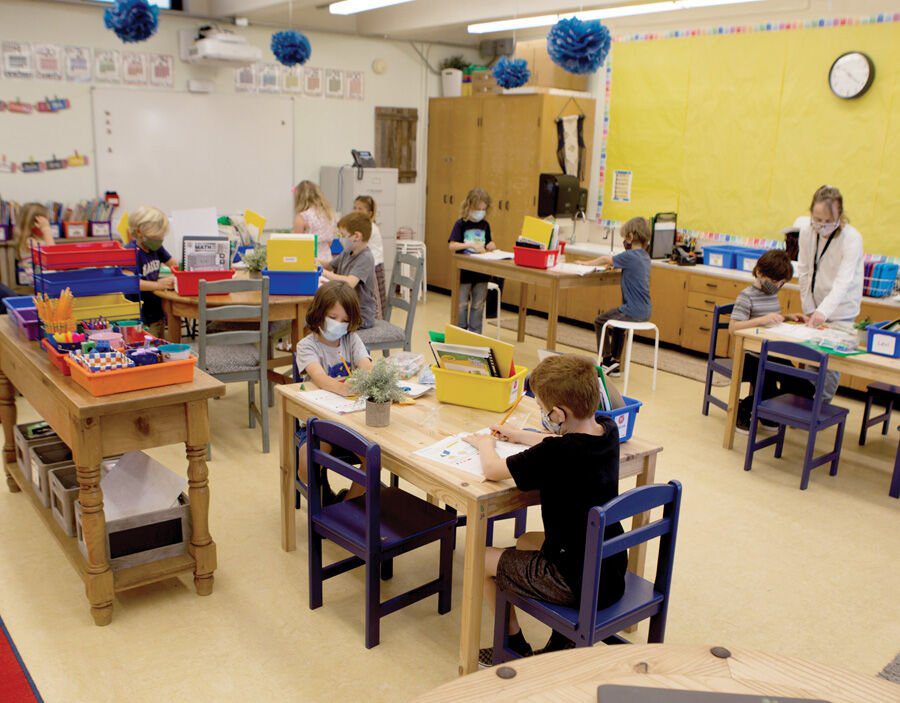In this past year of a profound global health crisis that has upended our daily lives and, at worst, stolen the health or lives of friends and loved ones, it’s no secret there are more people suffering with anxiety. With in-person instruction now offered at local Malibu schools, this may be a stressful time for those returning after a year of remote learning.
According to a report from Cedars-Sinai Medical Center, due to the lack of peer interaction that helps develop crucial social skills, many children have suffered an emotional, mental and developmental toll along with a probability of falling behind in their studies.
The anxiety of returning to school after a lengthy period away caused by the COVID-19 pandemic will likely be more stressful than a normal autumn return to the classroom, especially for children. A few therapists contacted by The Malibu Times did admit they were seeing children and adults with varying levels of anxiety related to the coronavirus pandemic and a return to a more normal life. The Wellness Center operated by the Boys and Girls Club of Malibu earlier told TMT it offers social support services to students including transitioning struggling distance-learning students, back to in-person instruction. BGCM social support services director Peggy Zherdev earlier confirmed: “We have professional therapists who are trained and have crisis intervention skills.”
There are also things parents can do to help.
“Be attuned to your child,” advised psychotherapist Elizabeth Topp of the former Roots & Wings Center in Malibu. “Although many children are excited about going back to school,” reengaging in public life can stir up fears in some children who have “gotten used to being home and like being with their parents.”
And going back to “normal life” is not as simple as just flipping a switch.
“There’s a whole spectrum of anxieties,” Topp said. “Families have to decide what their own level of comfort is. If you have someone sick at home, children could carry that anxiety that they could bring [illness] back home to a vulnerable family member. At this point, many are comfortable with the protocols and practices that are in place at school.”
The PhD pointed out that even with mask requirements, “there’s a sense of liberation to be able to go to recess.”
For parents with kids who are anxious, Topp suggested, “The best thing to do is normalize any fears of the unknown. This is something we haven’t lived through before.”
Still, she said, we have many things in our control, such as washing hands and wearing masks.
The psychotherapist suggested parents “check our own anxiety. If we are anxious, children pick up on that. Stay calm, grounded. Be available. Physical touch is important. Hold them. Lots of hugs.”
Topp suggested being detailed when describing what a school return will look like.
“Different aged children are going to need different things,” she said. “Young kids may not want to leave their parents after being by their side for so long.” Topp suggested younger children have a buddy at school so they can “create an in-school support system.”
Parents can also reach out to school staff.
“If a child is highly anxious, you can talk to the teacher,” Topp said. “Some teenagers can have social anxieties. A fun thing can be to give your kids little assignments so they focus on something different, like finding out three interesting facts about somebody today and for those already back on campus to talk about the day after your child returns from school.” Also, be on the lookout for seemingly unrelated issues, such as stomach aches since, Topp said, “Children can’t always explain their emotions.”
It may be beneficial to seek additional support if a child’s fears become irrational. Other signs to watch for are changing behaviors, acting out, fidgeting or picking at their skin or pulling hair. If a child suddenly has trouble concentrating, restlessness, irritability, excessive worry and crying, sleeplessness or nightmares it could be time to call a professional.
For those children already dealing with anxiety, it’s important to listen and stay calm. Cedars-Sinai gave some advice: “Watch for signs of depression: Children may become withdrawn, develop eating disorders or anxiety around food and their stress might manifest in abdominal or other physical pain. Kids who have been cyberbullied during virtual learning, especially, will undergo emotional strain in social settings.”
To ensure a successful transition back to school, some experts suggest creating an excitement about the return to school that outweighs anxiety and, as Topp suggested, be present, available, calm and offer lots of hugs.

